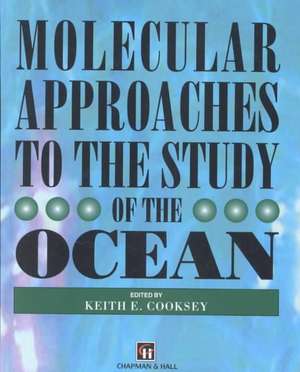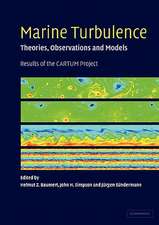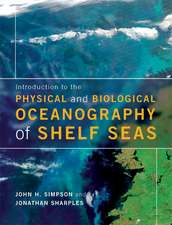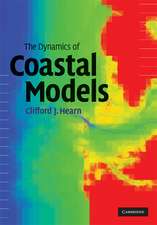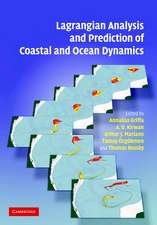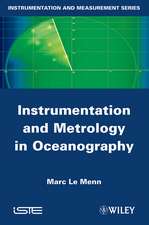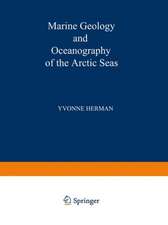Molecular Approaches to the Study of the Ocean
Editat de K.E. Cookseyen Limba Engleză Hardback – 31 dec 1997
| Toate formatele și edițiile | Preț | Express |
|---|---|---|
| Paperback (1) | 1236.99 lei 6-8 săpt. | |
| SPRINGER NETHERLANDS – 5 noi 2012 | 1236.99 lei 6-8 săpt. | |
| Hardback (1) | 1244.71 lei 6-8 săpt. | |
| SPRINGER NETHERLANDS – 31 dec 1997 | 1244.71 lei 6-8 săpt. |
Preț: 1244.71 lei
Preț vechi: 1517.94 lei
-18% Nou
Puncte Express: 1867
Preț estimativ în valută:
238.21€ • 246.08$ • 198.25£
238.21€ • 246.08$ • 198.25£
Carte tipărită la comandă
Livrare economică 25 martie-08 aprilie
Preluare comenzi: 021 569.72.76
Specificații
ISBN-13: 9780412729607
ISBN-10: 0412729601
Pagini: 549
Ilustrații: XVI, 549 p.
Dimensiuni: 178 x 254 x 32 mm
Greutate: 1.22 kg
Ediția:1998
Editura: SPRINGER NETHERLANDS
Colecția Springer
Locul publicării:Dordrecht, Netherlands
ISBN-10: 0412729601
Pagini: 549
Ilustrații: XVI, 549 p.
Dimensiuni: 178 x 254 x 32 mm
Greutate: 1.22 kg
Ediția:1998
Editura: SPRINGER NETHERLANDS
Colecția Springer
Locul publicării:Dordrecht, Netherlands
Public țintă
ResearchCuprins
1 Molecular phylogenetics: new perspective on the ecology, evolution and biodiversity of marine organisms.- 2 Molecular approaches to microbial biomass estimation in the sea.- 3 Molecular approaches to studies of the activities of marine organisms.- 4 Maxine virus ecology.- 5 Environmental control of gene expression in bacteria.- 6 Protein profile analysis for investigating genetic functions in microbial communities.- 7 Phylogenetic analysis of marine phytoplankton.- 8 Molecular markers of phytoplankton physiological status and their application at the level of individual cells.- 9 Phytoplankton activity through the measurement of ribulose bisphosphate carboxylase gene expression (RuBisCO).- 10 Phytoplankton growth studies by cell cycle analysis.- 11 Immunofluorescence approaches in the study of phytoplankton.- 12 Biochemical and molecular methods for the study of marine fungi.- 13 Nitrogen fixation in the marine environment: genetic potential and nitrogenase expression.- 14 Population genetics and phylogeny of planktonic copepods.- 15 Towards the molecular analysis of copepod production.- 16 Ecophysiology of lipids in pelagic crustacean Zooplankton communities.- 17 Molecular analysis of invertebrate development and growth: identification of developmentally regulated genes in model and commercially important species.- 18 Molecular studies of marine invertebrate biodiversity: status and prospects.- 19 Molluscan adhesive protein genes.- 20 Macroalgal phylogeny.- 21 Molecules, organdies and cells: fluorescence microscopy and red algal development.- 22 Sponge cell culture.- 23 Techniques for exploring symbiosis-specific gene expression in cnidarian/algal associations.- 24 Addressing the microbial ecology of marine biofilms.- 25 Incorporation of radioactive precursors into macromolecules as measures of bacterial growth: problems and pitfalls.- 26 Marine toxins: how they are studied and what they can tell us.- 27 Databases for use in molecular biology: concepts in their design, access and use.
Recenzii
`Most researchers in biological oceanography will find things of value in this well-produced book, and some of the chapters provide for a wider readership an excellent introduction to this critical area of environmental biology.'
Nature
`This excellent book is effectively a series of mini-reviews covering the complete gamut of molecular techniques which have recently become available to the marine biologist or oceanographer. ... The book is beautifully presented and all the contributions are of the highest quality; the editor has done a fine job of maintaining consistency without suffocating the authors' individual styles.'
Journal of Experimental Marine Biology and Ecology, 231 (1998)
Nature
`This excellent book is effectively a series of mini-reviews covering the complete gamut of molecular techniques which have recently become available to the marine biologist or oceanographer. ... The book is beautifully presented and all the contributions are of the highest quality; the editor has done a fine job of maintaining consistency without suffocating the authors' individual styles.'
Journal of Experimental Marine Biology and Ecology, 231 (1998)
